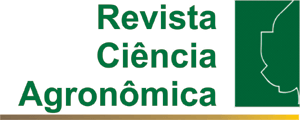ABSTRACT
Anthropogenic actions have caused soil degradation and revegetation is a way to recover degraded soils. However, salt-affected soils require the use of suitable species to extract salts from the soil. This study investigated the growth of shrub and tree species in a soil degraded by salts, alone or associated with a phytoextraction salt species, evaluating plant biomass yield and extraction of elements by plants. A field experiment was assembled with eight treatments: 1) Atriplex nummularia Lindl., 2) Mimosa caesalpiniifolia Benth, 3) Leucaena leucocephala (Lam.) Wit, 4) Azadirachta indica A. Juss, 5) A. nummularia + M. caesalpiniifolia, 6) A. nummularia + L. leucocephala and 7) A. nummularia + A. indica; in randomized blocks with four replications. After 30 months of cultivation, plants were collected to measure biomass and concentrations of Na, K, Ca, Mg, Cl, P, and N. A. indica plants had the highest total biomass (10.75 kg plant-1), about 15 times more than M. caesalpiniifolia, both in associated cultivation with A. nummularia. A. nummularia plants extracted more Na and Cl in the dry matter, maximum of 124.70 and 166.79 g plant-1, respectively. The highest production of plant biomass (23.55 t ha-1) and total extraction of elements (1438.51 kg ha-1) were obtained by associated cultivation of A. nummularia and A. indica. Associated cultivation did not decrease the phytoextractor potential of Na and Cl by A. nummularia plants and it can be used to regenerate degraded areas.
Key words
Soil degradation; Phytoremediation; Soil quality; Semiarid

 Thumbnail
Thumbnail
 Thumbnail
Thumbnail
 Thumbnail
Thumbnail
 Thumbnail
Thumbnail
 Thumbnail
Thumbnail
 Thumbnail
Thumbnail
 Thumbnail
Thumbnail






